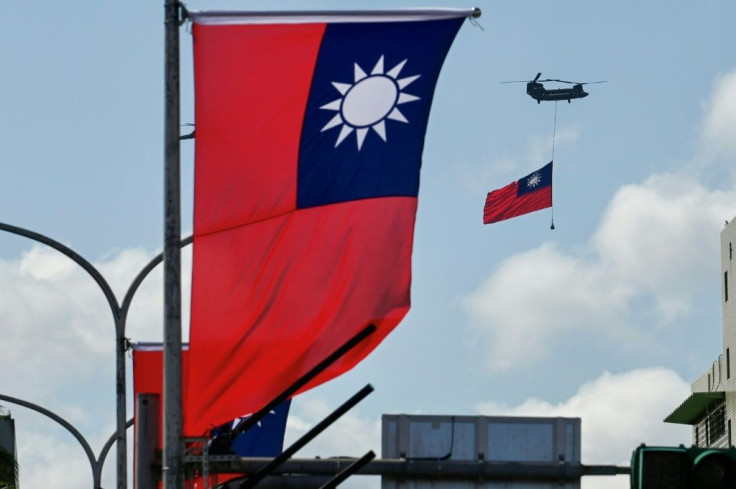Taiwan Plans To Hire Around 100,000 Indians To Address Manpower Shortage

KEY POINTS
- As many as 100,000 Indians could reportedly work in Taiwan's factories, farms and hospitals
- The job pact helps Taiwan meet manpower needs as the country is home to a large aging population
- The deal also helps India, which sees millions of youngsters enter the labor market every year
Taiwan may employ up to 100,000 Indians to address the country's manpower shortage, as part of a labor supply pact that could irk neighboring China, which opposes any official exchange between Taipei and other nations.
Plans are underway to send tens of thousands of Indian workers to the self-ruled island, which Beijing claims as its own, where they could work in factories, farms and hospitals, unidentified officials told Bloomberg. An employment mobility agreement is expected to be signed as early as December, the sources said.
The pact is part of Taipei's bid to address manpower shortage in key sectors like manufacturing, including factories, construction projects, household workers, and agriculture and fisheries, the sources claimed.
Taiwan is also willing to maintain pay parity between the Indian workers and local employees, and also offer attractive insurance policies to the former, the sources told the outlet.
Experts say Taiwan, which has an aging population, is expected to undergo a demographic transformation due to falling birth rates and rising life expectancy. The elderly population (aged over 65), has doubled from 2,031 thousand in 2002 to 4,086 thousand in 2022. With Taiwan poised to become a "super aged" society by 2025, the overall labor available is expected to decline. The aging population is also likely to stunt economic growth prospects, experts say.
While the employment deal with New Delhi helps meet Taiwan's need for more workers, it also holds promise for India, which sees millions of youngsters enter the job market every year. New Delhi has been brokering employment pacts with other countries, and has signed deals with Japan, France and the U.K. Similar agreements are also being discussed with Switzerland, Denmark, the Netherlands and Greece.
Arindam Bagchi, a spokesperson for India's Ministry of External Affairs, told reporters Thursday that the India-Taiwan jobs pact has reached its final stages.
"Negotiations by their very nature tend to not have a finite timeline," Bagchi said. "But we hope that they will be concluded in due course and that it will soon be possible to benefit from this mobility partnership."
The mass hiring could increase geopolitical tensions with China, which has its own border rivalry with India and opposes any official exchanges between Taiwan and other nations.
Beijing firmly opposes "all forms of official interaction between the Taiwan authorities and countries having diplomatic relations with China," Wang Wenbin, a spokesperson of the Ministry of Foreign Affairs of the Chinese Government, said in August.
India, since 1949, has adhered to the One-China policy, which recognizes Taiwan as a part of China. India and Taiwan do not have formal diplomatic and consular missions in their respective countries. However, India has the Taipei Economic and Cultural Center, which functions as a de facto consulate, and on the other hand, the India-Taipei Association functions as New Delhi's de facto diplomatic and consular mission of India in the capital of Taiwan.
India and Taiwan have increased cooperation in various sectors over the years, and have nurtured an active but unofficial relationship with each other.
In the last couple of decades, India-Taiwan trade has also increased from US$1.19 billion in 2001 to US$8.4 billion in 2022, reports say.
© Copyright IBTimes 2025. All rights reserved.






















